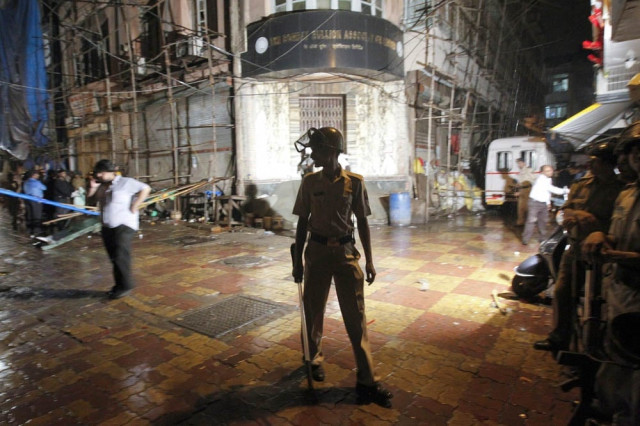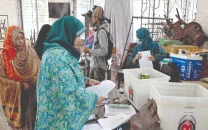Poor intelligence keeps India vulnerable: Analysts
Analysts say successive governments had visibly failed to learn the lessons of the past.

Despite Home Minister P. Chidambaram's insistence that Wednesday's serial bomb blasts in Mumbai could not be blamed on any intelligence failure, experts said India's internal security apparatus remained woefully inadequate.
The three explosions in the country's commercial capital left 17 dead and 131 injured, dozens of them seriously.
Ajai Sahni, executive director of the Institute of Conflict Management in New Delhi, said new security measures introduced after the 2008 Mumbai attacks had only addressed "a fraction" of the core weaknesses in policing and grassroots information gathering.
"Obviously, you cannot have a 100 percent guarantee against a terror attack, but that said, we have tremendous infirmities in terms of security," Sahni told AFP.
"Our system does not respond on a war footing to terrorism, it acts like a confused bureaucracy," he said, adding that India's police force was largely "incompetent" with little or no forensic capability or intelligence training.
Citing the absence of an effective national crime and terror database, Sahni said successive governments had visibly failed to learn the lessons of the past.
"We have been fighting insurgencies for decades now, and we only introduced a course on counter-terrorism for the police in 2010," he said.
Chidambaram, the minister responsible for India's internal security, had sought to pre-empt such criticism at a press briefing Thursday after visiting the blast sites.
"There was no intelligence failure," Chidambaram argued, highlighting the near-impossibility of preventing what might have been a "very small group" using crude, improvised explosives in a busy area.
The minister, appointed in 2008 to drive the modernisation of the ministry, also revealed that Mumbai police had foiled "a large number" of planned attacks since the 2008 assault that left 166 dead, although he declined to give any details.
Chidambaram was the driving force behind the creation of a National Investigation Agency, intended as a forum to share intelligence on threats from across the country.
Wilson John, a security expert at the Delhi-based Observer Research Foundation, said the government was ceding too much ground to militant groups.
"We can't rest on the idea that it's difficult to prevent attacks on soft targets, areas where many people congregate," John told AFP.
Pointing to counter-terror policies in countries like Britain and the United States, he said other countries had shown that increased surveillance and a properly trained police force could foil such incidents.
"As a state... we have become too used to terrorism, too tolerant," he said.
"We haven't invested enough in our men on the ground to gather intelligence. If you don't have intelligence, then you are going to see more attacks like this.
"Money is certainly an issue, India cannot afford to spend like the US or the UK but we need to understand how to spend our money better," he said.
The 2008 Mumbai attacks, in which 10 militants laid siege to multiple targets in the city for nearly three days, cruelly exposed the frailties of an under-trained, under-equipped police force.
Praveen Swami, associate editor at the Hindu newspaper and author of a book on covert militant activity in India, said many of the post-2008 security efforts had been well-intentioned but either misdirected or not followed through.
"After the Mumbai attacks, Maharashtra set up a police training academy, but they have no cadre of trainers, no instructors," Swami said.
Officers had been sent on counter-terror courses in Britain and the United States, Swami said. "But once they are back, they are not told to teach anyone else. There is no institutionalised effort to disperse the knowledge."
He also criticised a focus on acquiring sophisticated weaponry for new rapid action forces set up in the past two years.
"Obviously you are not going to get a first-world police force on a third-world budget," Swami said.
"But India needs to realise that the acquisition of gadgets is not going to compensate for an ill-trained, semi-educated police force."



















COMMENTS
Comments are moderated and generally will be posted if they are on-topic and not abusive.
For more information, please see our Comments FAQ